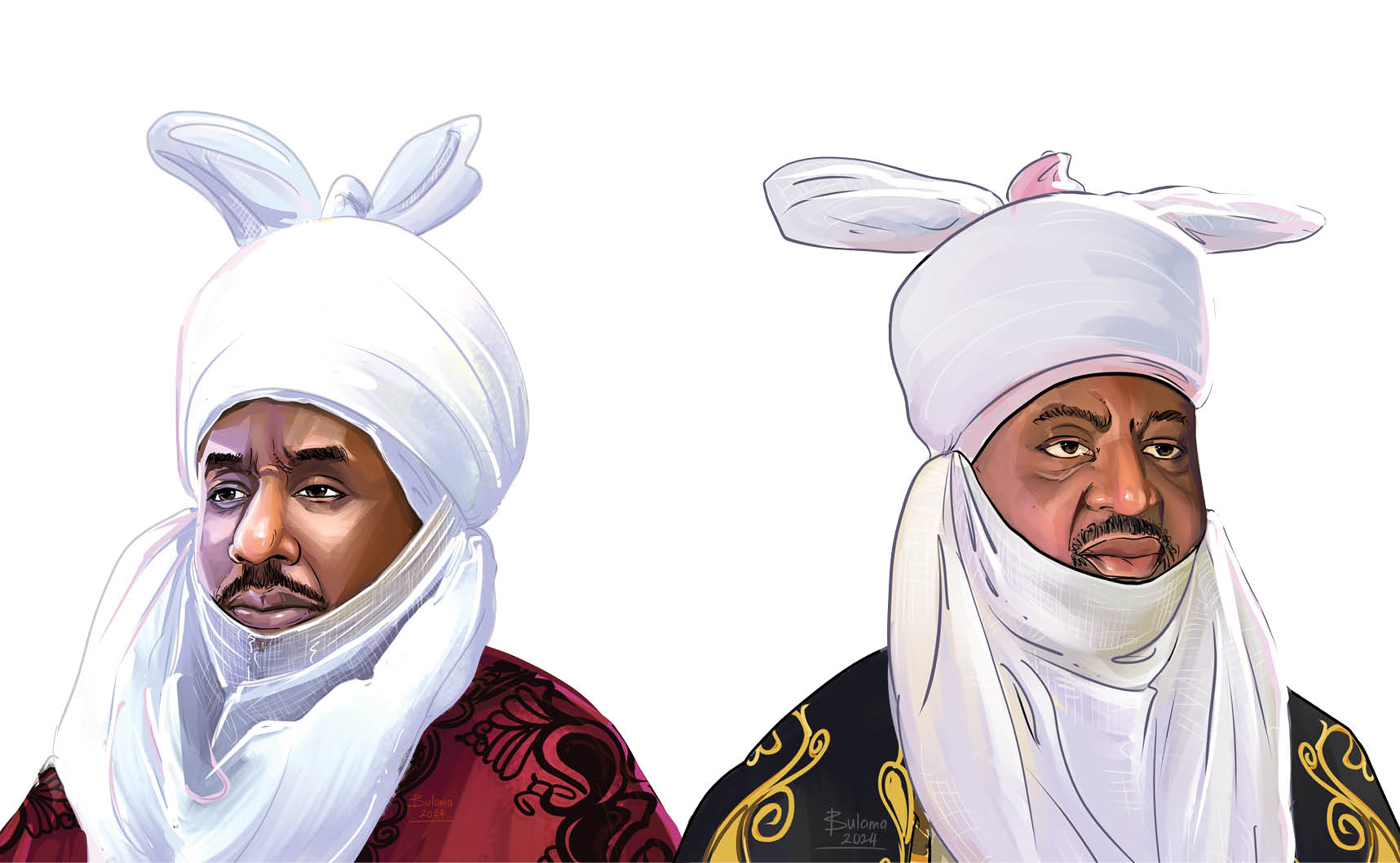Kano Emirate: Path for peaceful coexistence
The recent dethronement and installation of kings in Kano has plunged the kingdom into a state of uncertainty and tension. The legitimacy of both kings, being first cousins, has sparked a complex dispute, threatening the stability of the kingdom. As the situation unfolds, it becomes clear that a swift and peaceful resolution is imperative to […]

sanusi, bayero
The recent dethronement and installation of kings in Kano has plunged the kingdom into a state of uncertainty and tension. The legitimacy of both kings, being first cousins, has sparked a complex dispute, threatening the stability of the kingdom. As the situation unfolds, it becomes clear that a swift and peaceful resolution is imperative to avoid further conflict and ensure the well-being of the kingdom’s citizens.
With both kings being legitimate and having a familial connection, resolving the issue without antagonism will require careful diplomacy and creative solutions.
Let’s explore possible ways to address this challenge:
Mediation: Organise a neutral, respected mediator/s (e.g., a wise elder or a council of trusted advisers) to facilitate a dialogue between the two kings. This could help them understand each other’s perspectives and find common ground.
- World No-Tobacco Day: Need to protect youth from tobacco
- FG promises patronage of IVM CNG-powered vehicles
Power-sharing agreement: Consider a temporary or permanent power-sharing arrangement, where both kings have a role in governing the emirate. This could include a rotating leadership or a division of responsibilities.
Dual monarchy: Establish a dual monarchy system, where both kings rule simultaneously, with clear definitions of their respective domains and responsibilities.
Kingdom reorganisation: Re-evaluate the kingdom’s structure into smaller, autonomous regions, each with its own leader (either one of the kings or a new, neutral leader), and a clear definition of powers and responsibilities, to create a more decentralized and locally governed system, allowing for greater regional autonomy and potentially reducing tensions between the two kings.
This approach would enable the kingdom to:
Preserve unity while acknowledging regional differences
Empower local leaders and communities
Reduce central authority and potential conflicts
Foster more responsive and effective governance
Encourage regional development and cultural preservation
By making the kingdom into smaller, autonomous regions, each with its own leader and clear definition of powers, the kingdom can create a more decentralised and locally governed system, potentially reducing tensions and promoting a more peaceful coexistence.
Creating more local governments, and allowing each king to rule their own state could be a viable option. This approach could also be applied to other larger states, potentially leading to more effective governance and representation.
Here are some additional points to consider:
Advantages:
Power sharing: Both kings would have their own domain, eliminating the need for competition and potential conflict.
Local governance: Smaller states and local governments could lead to more responsive and effective governance, closer to the people.
Cultural preservation: Each state could preserve and promote their unique cultural heritage, contributing to the rich diversity of the country.
Economic growth: Smaller states could focus on their regional strengths, fostering economic growth and development.
Challenges:
Boundary disputes: Defining borders and resolving potential disputes could be complex and sensitive.
Resource allocation: Ensuring fair distribution of resources, including natural resources, infrastructure, and funding, would be crucial.
Coordination and cooperation: Mechanisms for inter-state cooperation, conflict resolution, and national unity would be essential.
Additional considerations:
Federalism: Implementing a federal system, with a strong central government and autonomous states, could provide a framework for balancing unity and regional autonomy.
Regional autonomy: Granting autonomy to regions within states could address the needs of diverse communities and prevent further divisions.
National unity: Efforts to promote national unity, such as shared national institutions, symbols, and celebrations, would be vital.
By carefully weighing these points, it’s possible to create a more decentralized, locally governed system, respecting the roots and legitimacy of both kings, while promoting national unity and prosperity.
This decision will benefit Kano and the six geopolitical zones respectfully by expansion both in economical achievement, displaying of human rights and leadership satisfaction and achievement.
This is the right time for government to concentrate in creating more states the problem of Kano is one of the factors that will open the government’s eye to create more states for expansion and demonstration of leadership styles.
Hajiya Binta Bello Dambatta wrote from Abuja
